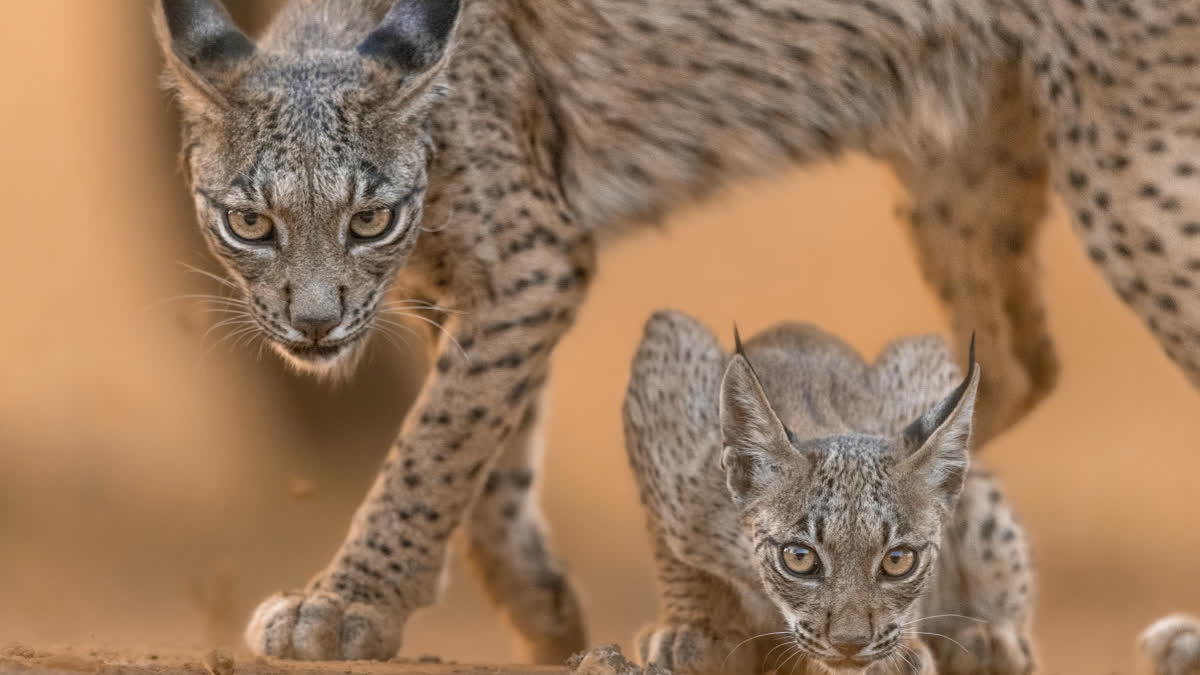New Delhi: As National Wildlife Week approaches, from October 2 to 8, 2024, India prepares to celebrate its diverse ecosystems and the vital importance of wildlife conservation. This year's theme, “Wildlife Conservation Through Coexistence,” aims to raise awareness about the pressing challenges faced by wildlife and the urgent need for collective action to preserve these invaluable resources.
A Historical Perspective: The roots of Wildlife Week in India trace back to 1957 when the first Wildlife Week was commemorated. It was established by the Indian Board of Wildlife in 1952 to raise awareness about the long-term goals of wildlife protection throughout the country. Initially, Wildlife Day was observed in 1955, but it was later expanded and renamed Wildlife Week in 1957. Since then, it has become an annual event dedicated to promoting conservation efforts and highlighting the rich biodiversity that India has to offer.
Importance of Wildlife Conservation: India is home to a remarkable array of wildlife, with over 600 wildlife sanctuaries and 106 national parks. These protected areas are critical not only for preserving species like the Bengal tiger, Indian rhinoceros, and snow leopard but also for maintaining ecological balance. National parks such as the Jim Corbett, Kaziranga, and Ranthambore showcase the country's commitment to safeguarding its natural heritage.
This year, various national parks will host special events, including guided wildlife tours, photography contests, and educational workshops to foster appreciation for local ecosystems. These activities will engage communities, schools, and organizations, encouraging participants to take an active role in wildlife conservation.
Community Engagement and Education: As National Wildlife Week unfolds, educational institutions across the country will integrate wildlife conservation topics into their curricula. Schools, colleges, and NGOs will conduct workshops, seminars, and nature trails, promoting awareness among students and local communities. “Educating the younger generation about wildlife is crucial for the future of conservation,” said Dr Aditi Sharma, a prominent wildlife biologist. “They are the stewards of tomorrow and can make a significant impact.”
Social media campaigns will further amplify this year’s efforts, encouraging citizens to share their wildlife experiences and advocate for conservation using hashtags like #NationalWildlifeWeek2024 and #SaveOurWildlife. By fostering a culture of engagement, the campaign aims to reach a broader audience, particularly the youth, to inspire them to take action.
Current Challenges: Despite the progress made in wildlife protection, many species in India remain endangered due to habitat destruction, poaching, and climate change. The latest reports indicate that India harbours a significant number of threatened species, including the Asiatic lion and various vulture species. Experts warn that immediate action is necessary to mitigate these threats. “National Wildlife Week is a powerful reminder that we must all play a role in protecting our wildlife and habitats,” emphasized Dr Sharma.
The Indian government has strengthened wildlife protection laws, such as the Wildlife Protection Act of 1972, and initiatives like Project Tiger and Project Elephant have shown promising results in stabilising populations of these iconic species. However, ongoing efforts are needed to combat illegal wildlife trade and habitat loss effectively.
A Call to Action: As National Wildlife Week 2024 approaches, it serves as a timely reminder of the intrinsic value of wildlife and the critical need for sustained efforts to protect it. By participating in this week’s events and adopting sustainable practices, individuals can contribute to preserving India’s rich biodiversity and the health of our planet.
National Wildlife Week is not merely a celebration; it is a call to action for everyone to reflect on their relationship with nature and take meaningful steps toward its preservation. Let us embrace this week as an opportunity to honour the incredible wildlife that shares our planet and commit to safeguarding our natural heritage for generations to come. Through awareness, education, and community engagement, we can ensure a brighter future for India's wildlife.
Read More:



